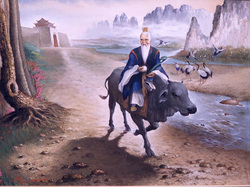
James Heskett, an emeritus professor, Harvard Business School, posed this question last year in an HBS Working Knowledge blog, “Why Isn’t ‘Servant Leadership’ More Prevalent?” He noted servant leadership is an ancient idea, that Lao-Tsé wrote about the ideas of servant leadership in 5 B.C. Heskett summarized and shared replies he received from readers to his question. The comments to this article are well worth reading (as I have tweeted recently @johnballardphd). Several noted the difficulty of being humble, of putting others before self, the inconsistency with business cultures, inconsistent with human nature. If you elevate others, how do you get visibility needed for promotions? Heskett noted, “servant leadership is only one approach to leading, and it isn’t for everyone.” But servant leaders can make a difference. Heskett quoted a reader who stated servant leaders “leave a huge legacy to those around them.”
In an article published in 2014, Diah Tuhfat Yoshida and her colleagues posed the question, “Does servant leadership foster creativity and innovation?” Here are insights from their literature review and discussion:
- Servant leadership is not unique to one culture but can be found in many cultures.
- Followers of servant leaders “enhance and grow their capabilities, as well as develop a greater sense of their own worth” (p. 1395).
- Servant leaders subordinate “their own goals for the greater good of the team and organization” (p. 1395).
- Servant leaders promote a workplace climate of “psychological safety, trust, and fairness.”
- Followers view servant leaders positively, identify with them, trust them.
My take-aways:
1. Servant leadership is tough. I agree with Dr. Heskett that it is not for everyone. My guess is that you need a personality that fits with the idea of a servant leader and attitudes that so align. Also there are probably organizational or task-related factors that may affect the effectiveness of a servant leader.
2. With that said, in my opinion, growing the capabilities of employees is a major responsibility of leaders. I have heard people say, “Why should I develop them? No one developed me. I did it myself.” I agree that many people do have the initiative and drive to enhance their capabilities, but others do not. Some capabilities may be organizationally specific. Employees may need to grow specific capabilities. Leader support can be key. Even where individual initiative is foremost, the leader can be an encourager, sounding board, mentor, coach.
Heskett, J. (May 1, 2013). Why isn't 'servant leadership' more prevalent? HBS Working Knowledge. http://hbswk.hbs.edu/item/7207.html
Yoshida, D. T., Sendjaya, S., Hirst, G., & Cooper, B. (2014). Does servant leadership foster creativity and innovation? A multi-level study of identification and prototypicality. Journal of Business Research, 67, 1395-1404.
Image of Lao-Tsé by widodo obtained from http://commons.wikimedia.org/wiki/File:ThaySangLawCin.jpg. Source: D:\Photo's\thaysanglawcin.jpg Used with permission: http://creativecommons.org/licenses/by-sa/3.0/deed.en
 RSS Feed
RSS Feed